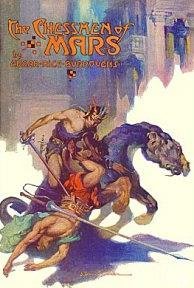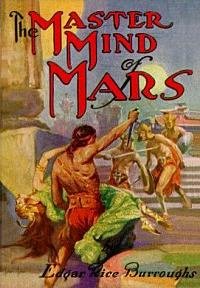Edgar Rice Burroughs - Pellucidar
Here you can read online Edgar Rice Burroughs - Pellucidar full text of the book (entire story) in english for free. Download pdf and epub, get meaning, cover and reviews about this ebook. genre: Humor. Description of the work, (preface) as well as reviews are available. Best literature library LitArk.com created for fans of good reading and offers a wide selection of genres:
Romance novel
Science fiction
Adventure
Detective
Science
History
Home and family
Prose
Art
Politics
Computer
Non-fiction
Religion
Business
Children
Humor
Choose a favorite category and find really read worthwhile books. Enjoy immersion in the world of imagination, feel the emotions of the characters or learn something new for yourself, make an fascinating discovery.
- Book:Pellucidar
- Author:
- Genre:
- Rating:4 / 5
- Favourites:Add to favourites
- Your mark:
- 80
- 1
- 2
- 3
- 4
- 5
Pellucidar: summary, description and annotation
We offer to read an annotation, description, summary or preface (depends on what the author of the book "Pellucidar" wrote himself). If you haven't found the necessary information about the book — write in the comments, we will try to find it.
Pellucidar — read online for free the complete book (whole text) full work
Below is the text of the book, divided by pages. System saving the place of the last page read, allows you to conveniently read the book "Pellucidar" online for free, without having to search again every time where you left off. Put a bookmark, and you can go to the page where you finished reading at any time.
Font size:
Interval:
Bookmark:
This etext was generated by Project Gutenberg (www.gutenberg.net).
Adapted to Microsoft reader by Kelly D. Larson.
Pellucidar Series #2
SEVERAL YEARS had elapsed since I had found the opportunity to do any big-game hunting; for at last I had my plans almost perfected for a return to my old stamping-grounds in northern Africa, where in other days I had had excellent sport in pursuit of the king of beasts.
The date of my departure had been set; I was to leave in two weeks. No schoolboy counting the lagging hours that must pass before the beginning of "long vacation" released him to the delirious joys of the summer camp could have been filled with greater impatience or keener anticipation.
And then came a letter that started me for Africa twelve days ahead of my schedule.
Often am I in receipt of letters from strangers who have found something in a story of mine to commend or to condemn. My interest in this department of my correspondence is ever fresh. I opened this particular letter with all the zest of pleasurable anticipation with which I had opened so many others. The post-mark (Algiers) had aroused my interest and curiosity, especially at this time, since it was Algiers that was presently to witness the termination of my coming sea voyage in search of sport and adventure.
Before the reading of that letter was completed lions and lion-hunting had fled my thoughts, and I was in a state of excitement bordering upon frenzy.
It--well, read it yourself, and see if you, too, do not find food for frantic conjecture, for tantalizing doubts, and for a great hope.
Here it is:
DEAR SIR: I think that I have run across one of the most remarkable coincidences in modern literature. But let me start at the beginning:
I am, by profession, a wanderer upon the face of the earth. I have no trade--nor any other occupation.
My father bequeathed me a competency; some remoter ancestors lust to roam. I have combined the two and invested them carefully and without extravagance.
I became interested in your story, At the Earth's Core, not so much because of the probability of the tale as of a great and abiding wonder that people should be paid real money for writing such impossible trash. You will pardon my candor, but it is necessary that you understand my mental attitude toward this particular story--that you may credit that which follows.
Shortly thereafter I started for the Sahara in search of a rather rare species of antelope that is to be found only occasionally within a limited area at a certain season of the year. My chase led me far from the haunts of man.
It was a fruitless search, however, in so far as antelope is concerned; but one night as I lay courting sleep at the edge of a little cluster of date-palms that surround an ancient well in the midst of the arid, shifting sands, I suddenly became conscious of a strange sound coming apparently from the earth beneath my head.
It was an intermittent ticking!
No reptile or insect with which I am familiar reproduces any such notes. I lay for an hour--listening intently.
At last my curiosity got the better of me. I arose, lighted my lamp and commenced to investigate.
My bedding lay upon a rug stretched directly upon the warm sand. The noise appeared to be coming from beneath the rug. I raised it, but found nothing--yet, at intervals, the sound continued.
I dug into the sand with the point of my hunting-knife. A few inches below the surface of the sand I encountered a solid substance that had the feel of wood beneath the sharp steel.
Excavating about it, I unearthed a small wooden box. From this receptacle issued the strange sound that I had heard.
How had it come here?
What did it contain?
In attempting to lift it from its burying place I discovered that it seemed to be held fast by means of a very small insulated cable running farther into the sand beneath it.
My first impulse was to drag the thing loose by main strength; but fortunately I thought better of this and fell to examining the box. I soon saw that it was covered by a hinged lid, which was held closed by a simple screwhook and eye.
It took but a moment to loosen this and raise the cover, when, to my utter astonishment, I discovered an ordinary telegraph instrument clicking away within.
"What in the world," thought I, "is this thing doing here?"
That it was a French military instrument was my first guess; but really there didn't seem much likelihood that this was the correct explanation, when one took into account the loneliness and remoteness of the spot.
As I sat gazing at my remarkable find, which was ticking and clicking away there in the silence of the desert night, trying to convey some message which I was unable to interpret, my eyes fell upon a bit of paper lying in the bottom of the box beside the instrument. I picked it up and examined it. Upon it were written but two letters:
D. I.
They meant nothing to me then. I was baffled.
Once, in an interval of silence upon the part of the receiving instrument, I moved the sending-key up and down a few times. Instantly the receiving mechanism commenced to work frantically.
I tried to recall something of the Morse Code, with which I had played as a little boy--but time had obliterated it from my memory. I became almost frantic as I let my imagination run riot among the possibilities for which this clicking instrument might stand.
Some poor devil at the unknown other end might be in dire need of succor. The very franticness of the instrument's wild clashing betokened something of the kind.
And there sat I, powerless to interpret, and so powerless to help!
It was then that the inspiration came to me. In a flash there leaped to my mind the closing paragraphs of the story I had read in the club at Algiers:
Does the answer lie somewhere upon the bosom of the broad Sahara, at the ends of two tiny wires, hidden beneath a lost cairn?
The idea seemed preposterous. Experience and intelligence combined to assure me that there could be no slightest grain of truth or possibility in your wild tale--it was fiction pure and simple.
And yet where WERE the other ends of those wires?
What was this instrument--ticking away here in the great Sahara--but a travesty upon the possible!
Would I have believed in it had I not seen it with my own eyes?
And the initials--D. I.--upon the slip of paper!
David's initials were these--David Innes.
I smiled at my imaginings. I ridiculed the assumption that there was an inner world and that these wires led downward through the earth's crust to the surface of Pellucidar. And yet-
Well, I sat there all night, listening to that tantalizing clicking, now and then moving the sending-key just to let the other end know that the instrument had been discovered. In the morning, after carefully returning the box to its hole and covering it over with sand, I called my servants about me, snatched a hurried breakfast, mounted my horse, and started upon a forced march for Algiers.
I arrived here today. In writing you this letter I feel that I am making a fool of myself.
There is no David Innes.
There is no Dian the Beautiful.
There is no world within a world.
Pellucidar is but a realm of your imagination--nothing more.
BUT-
The incident of the finding of that buried telegraph instrument upon the lonely Sahara is little short of uncanny, in view of your story of the adventures of David Innes.
I have called it one of the most remarkable coincidences in modern fiction. I called it literature before, but--again pardon my candor--your story is not.
Font size:
Interval:
Bookmark:
Similar books «Pellucidar»
Look at similar books to Pellucidar. We have selected literature similar in name and meaning in the hope of providing readers with more options to find new, interesting, not yet read works.
Discussion, reviews of the book Pellucidar and just readers' own opinions. Leave your comments, write what you think about the work, its meaning or the main characters. Specify what exactly you liked and what you didn't like, and why you think so.









